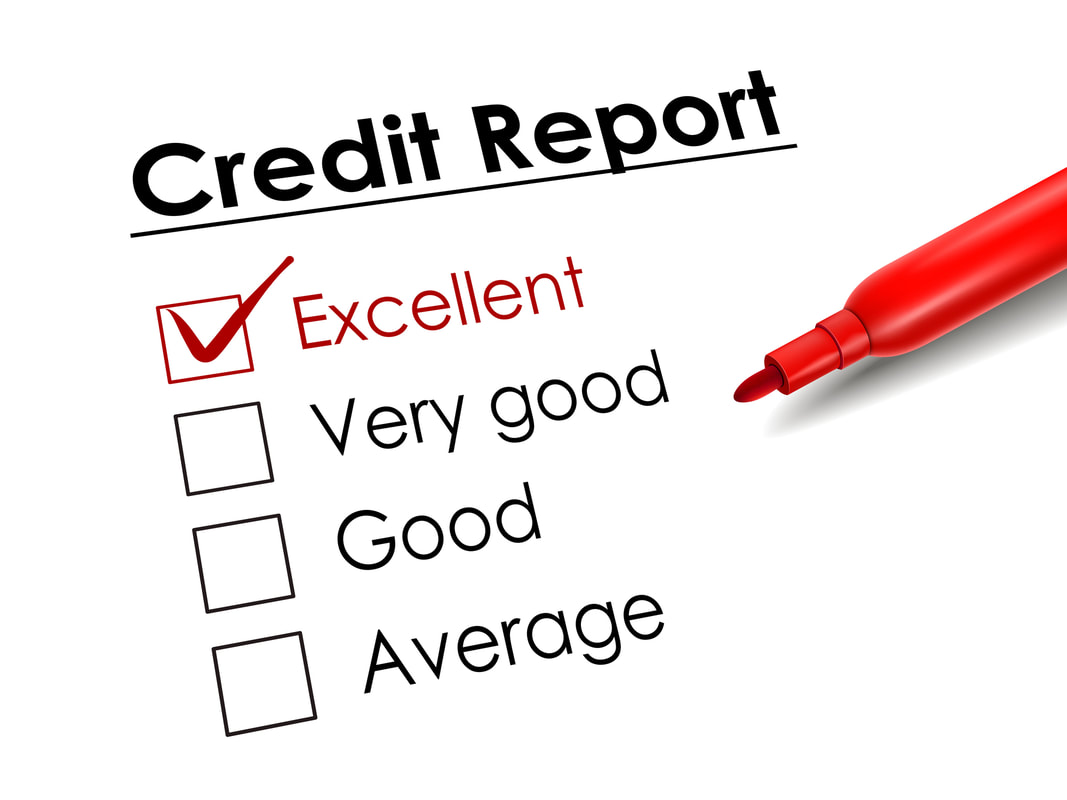|
THIS IS AN ARTICLE FROM THE BALANCE FINANCIAL GUIDE Turning 16 years old marks many milestones for a child: learning to drive, preparing for college, and yes, his or her first credit check. While it may seem counterintuitive (after all, most teens don’t have a credit history), the reality is that identity theft can happen to anyone at any age. Checking their credit report may be the only way to detect illegal activity. To protect your children against fraud, here are some things to keep in mind:
Kids are particularly vulnerable Children are susceptible to identity theft because no one expects them to be targets. Unfortunately, they don’t need lines of credit or even a checking account to be victims. If a thief obtains their social security number, he can apply for loans, credit cards and even file taxes (and get a refund). And of course, much of this activity will be reflected on their credit report. Nip the problem in the bud The fallout from identity theft can be damaging for anyone, but it’s especially hard for young adults. A spotted credit report can keep them from getting started in life, making it tough to obtain credit cards and home loans. But if you identify false or inaccurate information early, you may be able to stop it from causing a long-term financial headache. Opportunity for a money lesson While identity theft can be a worrisome topic, use the credit report check as a chance to teach your children about finances. Start a discussion about credit, and how to properly use it. If you lay a strong foundation now, they’ll be more likely to make money-smart decisions when they get older. What you can do So how do you get started? Contact the three credit bureaus (Experian, Equifax and TransUnion), and ask them to run a manual search on your child. Typically, children don’t have credit reports (unless, of course, someone has obtained and used their information). If your child has false or incorrect information on the report, visit identitytheft.gov/child for information addressing this kind of problem. We are pleased to announce that LG&W Federal Credit Union has awarded four $1,500 scholarships to the following high school seniors attending a college in the fall of 2023. The Bobby Blancett Memorial scholarship program was created to help young members with the financial challenges of higher education.
Starting a budget can be a fun and exciting way to get your finances in order. Budgeting can be a tool to help you discover bad spending habits, as well as create smart new ones. HABIT ONE: Set a goal Decide why you are going to start a budget. Do you want to pay off bills? Do you want to save for the holidays or a family vacation? Once you decide, starting a plan and knowing how to save will be easier. Decide on an amount you would like to save and the date you would like to have the money available. If you are saving for a family vacation, plan well ahead for such needs as an early deposit on a cabin or airline tickets. HABIT TWO: Write everything down Writing everything down can be tedious, even overwhelming. However, when you write down each transaction, you will begin to see patterns in your spending habits. For example, getting coffee every day will add up over time, and you will be able to see where your money is going and how fast it is being depleted. HABIT THREE: Control how you spend Are you eating out too often? Plan to eat out once or twice a month, and only spend a portion of what you spent in the past on one meal for your family. Can you carpool to work? Saving money on gas is an excellent way to get ahead financially. When you look through your checkbook and see where the money has gone and what you can cut out of your spending, you will start to see your savings account grow. HABIT FOUR: Create a plan Determine fixed expenses that you have each month. The monthly mortgage, car payment, insurance, taxes, utility bills, entertainment, grocery shopping, and more will be static. You can plan on what amounts will be deducted each month. Then you can add other expenses into your budget that don’t necessarily stay the same each month. Once you know your expenses, you can plan for other items in your budget. HABIT FIVE: Plan and save It’s inevitable: your car will break down, your air conditioner will go out in the middle of summer, or some other emergency will pop up when you least expect it. Set aside money each month for situations that arise throughout the year, so you will be prepared when an incident occurs. If you have money set aside for such occasions, you won’t have to tap into your credit cards and fall back into debt. Planning can go a long way when it comes to special needs for money. If you can go the entire year without an incident, keep that money aside for future purchases. Setting goals and creating healthy financial habits will help you stay ahead and prepare for whatever comes. Having money in your pocket and money saved at your financial institution will give you confidence and allow you to live without financial worry. In addition, creating smart budgeting habits will help you learn what you need and keep you from spending money on things you don’t. Stay in the know on special offers, promotions, events , closings and more! Opt-in to Text Marketing before October 31 at 4:30 pm to be eligible to participate in three drawings to have $75 deposited into your LGWFCU checking account! To enter, Text LGWFCU to (888) 354-8698 or scan the QR code below:
College education is a prime time for young adults to learn about finances and plan for their future. Attendees will learn about using credit wisely, developing a positive credit history and score, creating and managing their own budget, ways to track spending, and options for student loan repayment. SESSION 1: Tuesday, September 13, 2022 12:30 PM - 1:30 PM CDT Click here to register for the session SSESSION 2: Thursday, September 22, 2022 7:30 PM - 8:30 PM CDT Click here to register for the session College education is a prime time for young adults to learn about
finances and plan for their future. Attendees will learn about using credit wisely, developing a positive credit history and score, creating and managing their own budget, Colways to track spending, and options for student loan repayment. Session 1: Tuesday, September 13, 2022 Time: 10:30 a.m. - 11:30 a.m. (PST) Share link: bit.ly/PersonalFin4CollegeStudents Session 2: Thursday, September 22, 2022 Time: 5:30 p.m. - 6:30 p.m. (PST)
ABOUT THE PRESENTER  Jessica Jeffreys is a Relationship Manager for West Tennessee, North Mississippi, and Eastern Arkansas. Before joining Confluent Strategies in February of 2015, Jessica worked in the banking industry as an AVP from 2005 to 2015. She earned an Associate of Science degree from Southwest Tennessee Community College and a Bachelor of Arts degree from the University of Memphis in Communication and Media Studies. We are pleased to announce that LG&W Federal Credit Union has awarded three $1,500 scholarships to the following high school seniors attending a college in the fall of 2022. The Bobby Blancett Memorial scholarship program was created to help young members with the financial challenges of higher education.
Each of the three nationwide credit reporting bureaus – Equifax, Experian, and TransUnion – will provide you with a free copy of your credit report, at your request, once every 12 months. They have established one central website, telephone number, and mailing address to use for ordering your report. The credit bureaus will only be providing the free annual reports through this central location, not through their individual websites, telephone numbers, or addresses. Web: www.annualcreditreport.com Telephone: 877-322-8228 Mail: Annual Credit Report Request Service P.O. Box 105281 Atlanta, GA 30348-5281 You may get a free report from each of the three bureaus all at once, or stagger your requests throughout the year. If you request the report online, you should be able to view it immediately. Requests via telephone or mail will take approximately 15 days for processing. Credit Scores The free credit reports do not include a credit score. A credit score is a number used to determine the level of risk you might represent if a financial institution were to lend to you. Many lenders use credit scores to determine whether to extend credit, and at what rate. The credit bureaus provide, for a fee, reports with scores. Beware of Free Credit Report Scams Unfortunately, with this opportunity to fight identity theft, there is an opportunity for fraud. The Annual Credit Report Request Service is the only authorized source for your free annual credit report from the three major bureaus. Neither the Annual Credit Report Request Service nor the bureaus will send emails requesting your personal information. If you get an email or see a pop-up ad that claims to be affiliated with the Annual Credit Report Request Service or www.annualcreditreport.com, do not reply or click on any link in the message – it’s probably a scam. Other Free Reports You have the right to request a free credit report directly from the credit bureaus under certain circumstances. These additional reports are not available through the Annual Credit Report Request Service. You may be eligible for free reports if:
The Bobby Blancett Memorial Scholarship Applications Now Available for High School Seniors!1/14/2022
We are pleased to announce that LG&W Federal Credit Union will again offer four $1,500 scholarships for qualifying high school seniors attending a college, university, or approved vocational school in the Fall of 2022. The Bobby Blancett Memorial scholarship program was created to help young members with the financial challenges of higher education.
While the cost of everything from dairy products to snack foods to toilet paper seems to be on the rise, incomes are not keeping pace. Trying to keep your head above water and your credit out of the dumpster is becoming increasingly difficult.
Perhaps the most important strategy to take is to create a simple spending plan that delineates how much you can spend within a specific time frame, such as one month. Once the limit has been reached, there’s no more spending at all. With a strategy like this one, the consumer needs to list necessary expenses first. These are the ones that must be paid or life will not go on in any semblance of its future self. Break down your expenses The first tier of necessary expenses includes items such as the monthly mortgage payment, medical prescriptions, grocery allotment, electricity costs, water bills, gas for home use, fuel for the vehicles, car payments, doctor and dental fees, and taxes. On the secondary tier, consumers will need to list such expenses as current insurance premiums, telephone use, and trash fees. Finally, expenses such as credit card payments, television services, and Internet services should appear. If the amount of liquid or disposable cash is eaten up before you get to the third tier, then cutting back on some expense in a previous tier becomes absolutely necessary. The first step in deciding where you can possibly cut back is to look at each expense and find at least one strategy for lowering the cost. Restructure Start restructuring the budget with the third tier since that is where the expenses are more or less optional. If you cut back on credit card usage, the very next bill will be smaller than the previous one. Therefore, simply by incorporating a cut back in your charging habits, you can lower your monthly living costs. Reconsider your costs Next, find a way to cut back your use of television or Internet services. Call the company and request a downgrade in services or shop around for a cheaper company. For your electric, gas, and water bills, you can look for small ways to cut back on the expense. Perhaps something as simple as using surge protectors that you turn off at night can help to save a lot of money on electrical appliances such as televisions and computers. In order to lower your car payments or your mortgage, you can check into refinancing the loans. To lower insurance costs, have higher deductibles set in place or shop around for better rates. Downsize your fleet and sell off the spare car. Car pool with someone and save on fuel. If you look long enough and hard enough, you can find small ways to improve on your spending habits. Over the course of a year, you might just save up enough to pay off one of your debts in full. |
Our BALANCE Financial Guide is dedicated to helping you balance life’s important decisions.
Archives
August 2023
Categories
All
|



















